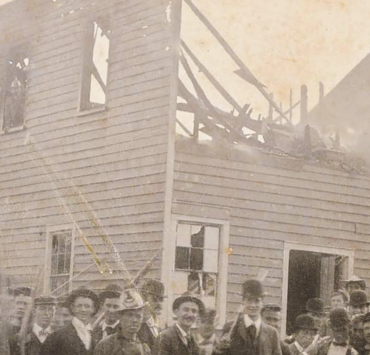
POLITICS, TULSA MAYORAL RACE
Gary Lee & Kimberly Marsh
Photo, Adobe Images
The contest for the City of Tulsa Mayor’s seat is now in full swing. It may be nonpartisan, but it is becoming increasingly contentious within the Democratic Party.
Two Democrats vie for the seat, which will be decided in the general election on Nov. 5. On that date, more than 200,000 Tulsa voters are also expected to hit the polls to vote for the U. S. President.
One of the two mayoral candidates will essentially become the CEO of local issues, economic and housing development, remedying racial disparities, and improving equality indicators. For now, they are in a political sandbox. Who will be the first to take off the proverbial “gloves?” Or are their gloves already off?
The purpose of a nonpartisan race for mayor was to de-emphasize the role as a bully pulpit for either Democrats or Republicans and to create a form of government in which the political leader of Tulsa worked closely with the City Council to achieve goals. After becoming mayor in 1988, Rodger Randle led the effort to change Tulsa’s charter to create a mayor-council form of government.
The campaign was successful, where four previous attempts in 35 years to make this change had failed. The change abolished the commission form of government and created a nine-member city council. The council aided authorities’ boards and commissions to set policy and trusts.
Flash forward to 2024, where in one Democratic corner is Tulsa County Commissioner Karen Keith, a former television anchor/producer turned politician. In 2002, she went to work for Mayor Bill LaFortune as communications director.
In the other Democratic corner is St. Rep. Monroe Nichols (D-72), who entered politics as a young University of Tulsa graduate to work in then-Mayor Kathy Taylor’s administration. There, he learned about city government.
On the surface, the two candidates have a lot in common. They both have government experience and some knowledge of the inner workings of the City of Tulsa system, budgeting, public works, police and fire, zoning, permitting, and city planning.
Both have been voted into public positions, and voters saw fit to retain them for at least one additional term.
Both are committed to and passionate about working with Tulsans to make changes.
And yet, the approach that Keith and Nichols take to Tulsans, including their bids to reach voters, is different.
A Dual Of Words
Behind the scenes and in public appearances, both Keith and Nichols are sharpening attacks against one another.
For her part, Keith is doubling down on her criticism of Nichol’s record. She says he has bounced between jobs and, although he has been in government for years, has little to show for it.
“If you look at his background in nine years, he’s had eight jobs, and in his legislative record, he’s missed 30% of meetings, those kinds of things. And then what do we have to show for it? He’s passed two bills, one of which I truly appreciate, that was the rape kit bill that he authored, so but in eight years, two bills we all know our legislators have done a lot more than that.”
Nichols has criticized Keith’s lack of a transparent platform for what she would achieve as mayor.
“I’ve not heard the commissioner talk about what she would do as mayor in terms of anything beyond a commercial. I’ve seen it. And so, when I think about the commercials that I’ve seen, I think about, you know, her solutions, homelessness as defined by the commercial. So, I think what I have observed from her over the last years is someone who doesn’t necessarily have a North Star but someone who definitely wants to wants a job.
I believe getting elected mayor for me is step one on a journey to do things I’ve been talking about for the last 14 months. Getting elected mayor for Karen is crossing the finish line on a career just by getting elected. And what happens over the next three years?”
Keith is apparently hoping that an appeal to Republican voters will help her best Nichols and win the election.
In an interview with The Oklahoma Eagle in September, Keith said she had shaken up her campaign team. She acknowledged that Republican strategists Campaign Advocacy Management Professionals (CAMP) founded by Fount Holland and Matthew Parker, chief operating officer, advised her campaign. Parker is a partner at CAMP, Oklahoma’s premier Republican political consulting and advertising firm.
“Certainly, my track record with working with the Republican administration speaks miles because I know I work across party lines,” Keith said.
Keith also said that she had balanced her strategy team by adding another Democrat to the campaign.
In a clear pitch to right-of-center voters, Keith has said that she would welcome Brent VanNorman, the conservative businessman whose bid for mayor was unsuccessful, to join her team should she become mayor. Keith said there would “absolutely” be a role for VanNorman to play in her leadership team.
She added that Nichols would also be welcomed on her team.
In an interview, Nichols said he would “never” agree to join Keith’s team if she becomes mayor.
“I would not work for Karen Keith because I don’t trust Karen Keith to do the job,” he said.
Nichols: Steering Away From Extremes
In his search for broad support, Nichols is downplaying party affiliations. Instead, he emphasizes the importance of addressing significant challenges in Tulsa and achieving results.
“I think it’s less about who we are voting for president and how that might differ from me and a whole bunch of people in Tulsa,” Nichols told The Oklahoma Eagle.
“I think it’s really about whether you are somebody who can get the job done.” He added, “Another material difference between the commissioner and me has been my willingness to go to just about anywhere. I don’t just go to democratic spaces to talk about this campaign. I’ve gone to some pretty conservative spaces, too, and when I’ve gone in there, I’ve not presented myself as anything other than who I am. There have been times when I’ve been asked to some conservative spaces and addressed tough issues. The question always is, can you get there? And there are very few people who have watched the race closely who have any questions about what my priorities are.”
Nichols explained that his prescriptions for tackling issues in Tulsa have clear goals, and residents of the city will be able to chart his progress. For instance, his plan to end homelessness in the city would take place over six years.
Keith Is Running On Her Record
In an interview with The Oklahoma Eagle – and other debates and public appearances, Keith underlined her record as a country commissioner working with leaders of Tulsa and other surrounding communities to improve infrastructure and city services. It’s a record of concrete achievements, she says, which contrasts sharply with Nichol’s career.
Vision 2025 is an example that she raises often to illustrate how she collaborated with others to achieve concrete results.
Starting in 2003, the sweeping plan of Vision 2025 called for a capital tax dedicated to upgrade buildings and other aspects of the infrastructure in Tulsa and the surrounding suburbs. “I was certainly not a lead on Vision 2025, but I was on the team,” she recalls.
“We went out and spoke to every Rotary Club Kiwanis, neighborhood association and passed it. And it’s been transformative. Our downtown was dead 20 years ago. You have the same story if you also look at Jenks, Owasso, and Broken Arrow. We lifted the whole county. We invested in ourselves, and it paid off. I’m proud to have been a piece of that.”








